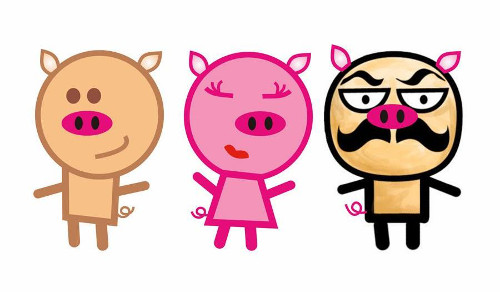

By: Gavan Titley
Source: http://www.theguardian.com/
Following its significant gains in last month’s local elections, the French Front National leader, Marine Le Pen, swiftly announced that school cafeterias would no longer serve non-pork substitution meals to children living in towns won by FN candidates. Targeting Muslims for another ritual round of public humiliation, while also excluding Jewish children, Le Pen declared: “There is no reason for religion to enter the public sphere.”
While Le Pen framed this fixation on the dietary requirements of her fellow citizens as a defence of state secularism, the FN mayor of the south-western town of Arveyres, Benoit Gheysens, suggested the move was simply to cut costs and to prevent “staff being distressed” by excessive food waste. This mix of environmental concern and secular commitment illustrates just how eclectic the far right can be in its defence of order, and Le Pen’s conversion to republican values is shaped by this strategic elasticity.
As recently as 2011, Le Pen was threatened with prosecution for describing Muslims praying in the streets as comparable to the Nazi occupation of France, rather than opting to oppose it as an assault on the neutrality of public space. Her subsequent cultivation of a rightwing defence of secularism is based on the realisation that the supposedly universal values of the republic can be appropriated as a productive front in the struggle for national identity.
The prime reason for this conversion, of course, is that it provides a fertile opportunity for consistently reproducing public controversies regarding the “Muslim problem” and its threat to national identity.
As Arun Kundnani says in his newbook, The Muslims are Coming, the social and political construction of racism in the post-9/11 period has relied in part on translating “cultural markers associated with Muslimness (forms of dress, rituals, languages) … into racial signifiers”.
This constant manufacture of controversy is a ritual whereby yet another dimension of Muslim life can be stereotyped, held up for public scrutiny and marked out as a problem that requires resolute political intervention. Symbols can be endlessly generated, leaving every cultural marker to be labelled as yet more evidence of the excessive demands of eternal foreigners on an overly tolerant “host”.
Much of this pig-whistle politics, which is becoming more prevalent across western Europe, is opportunistic. Heinz-Christian Strache of the Austrian Freedom party, for instance, who in 2012 posted an antisemitic caricature on his Facebook page, also circulated a picture of himself with a roast suckling pig and the caption “Isst du Schwein, darfst du rein” (If you eat pork you can come in).
The Danish People’s party, fully invested in a culture war over Danish values, was an early adopter of animal welfare in order to campaign against halal meat and has long sought to politicise the provision of halal options in nurseries as the “forced adoption” of Muslim tradition.
When it was reported last summer that some Copenhagen kindergartens, in consultation with parents, had stopped serving pork products, the DPP complained of discrimination against Danish food culture. The intensity of the resulting debate – and of the charge that only the DPP spoke for the silent majority victimized by overly indulged minorities – prompted the Social Democrat prime minister, Helle Thorning-Schmidt, into the absurd public affirmation of the importance of meatballs to Danish culture and identity.
That a centre-left politician competitively declares her fidelity to a meat product is a predictable effect of the European politics of integration of the last decade. Integration, for all its suggestion of a weighty national project, is in practice a series of public demands: they must do this, they shouldn’t do that. Integration politics responds to the social anxieties of the neoliberal era by producing symbolic problems that can be politically addressed through cost-free symbolic action.
Yet, they are never cost-free for those racialised as the problem. It is, for instance, in this context that a sinister genre of direct action has developed around symbolically and physically imposing pork products on Muslims. The French “anti-white racism” group Bloc Identitaire has occupied mosques and tried to organize a march to kick back against the “racist refusal” of Muslims to eat pork.
In what it later, predictably, described as a joke, the Flemish Vlaams Belang stormed a food festival at a school in Schoten and reportedly forced pork sausages into the mouths of some children. When some enterprising young people in Helsinki wanted to humiliate an Afghan asylum seeker on hunger strike for 30 days in front of the Finnish parliament, they made a video of themselves inviting him to warm his hands on a fire before cooking sausages on it.
Pork has become a racist meme, endlessly adapted through practices of harassment: mosques in Europe have had pig’s heads nailed to their doors, pork-filled envelopes sent in the mail,slices of ham rubbed on door handles, bacon slices slipped in the shoes of worshippers as they prayed.
This is the political context in which Le Pen’s pig-whistle politics seeks a register, for all its lofty appeals to the conceits of the republic. And when the pork has been exhausted, a new affront, or burning source of resentment, will be produced.



